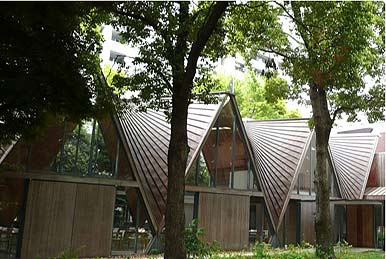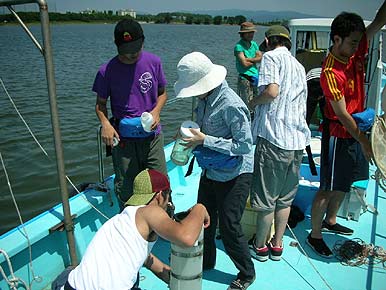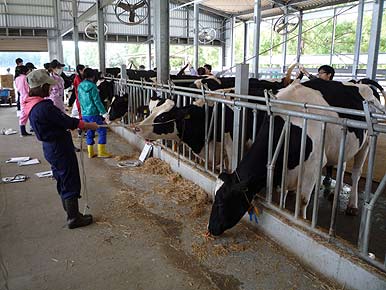The Perfect Combination of a Highly Independent Course System and a High Level of Specialized Education

Make your way to the classroom as you walk through the campus. Education at the Faculty of Agriculture is conducted through a unique system known as the Course and Major System. The Faculty’s educational curriculum is designed as a three-layered structure with one faculty, three courses and 14 majors. The three courses offered are: the Applied Life Sciences Course, which covers biological and life sciences; the Environmental and Resource Sciences Course, which is concerned with field environmental sciences; and the Veterinary Medical Sciences Course, which covers the medical treatment of animals. These three courses are further divided into 14 specializations.

Those who are accepted into the Faculty for their third and fourth years of undergraduate education will spend six months during the winter semester of their second year taking classes covering the basics of agriculture (Basic Agricultural Classes) as well as classes covering various agricultural topics (Agricultural Topics Classes). These lectures are open to all students in the Faculty of Agriculture. After completing these classes, students will go on to take Specialized Classes, which are also lectures but cover significantly more specific topics than the basic classes do and in a specialized manner. The final step for students in the Faculty is to take specialized classes within their major field (Specialized Major Classes). The content of these classes mostly consists of experimentation and fieldwork. Even as undergraduates, students, through their everyday interaction with professors and teaching assistants, will have an opportunity to participate in the latest cutting-edge research being conducted in their fields.
The Agricultural Topics Classes are designed to give students an overall perspective of the diverse areas of agriculture, and students are generally given the freedom to choose which classes to take. Some of the Basic Agricultural Classes and Agricultural Topics Classes are required, but these classes are arranged in such a way that students can still enjoy a high level of freedom when choosing classes. Finally, most of the Specialized Major Classes are required for graduation. The aforementioned three-tiered structure of the Faculty’s curriculum fosters within students an understanding of the mission of agriculture while cultivating interdisciplinary viewpoints. The curriculum is also designed to respond to society’s needs by providing a highly advanced and specialized education.







